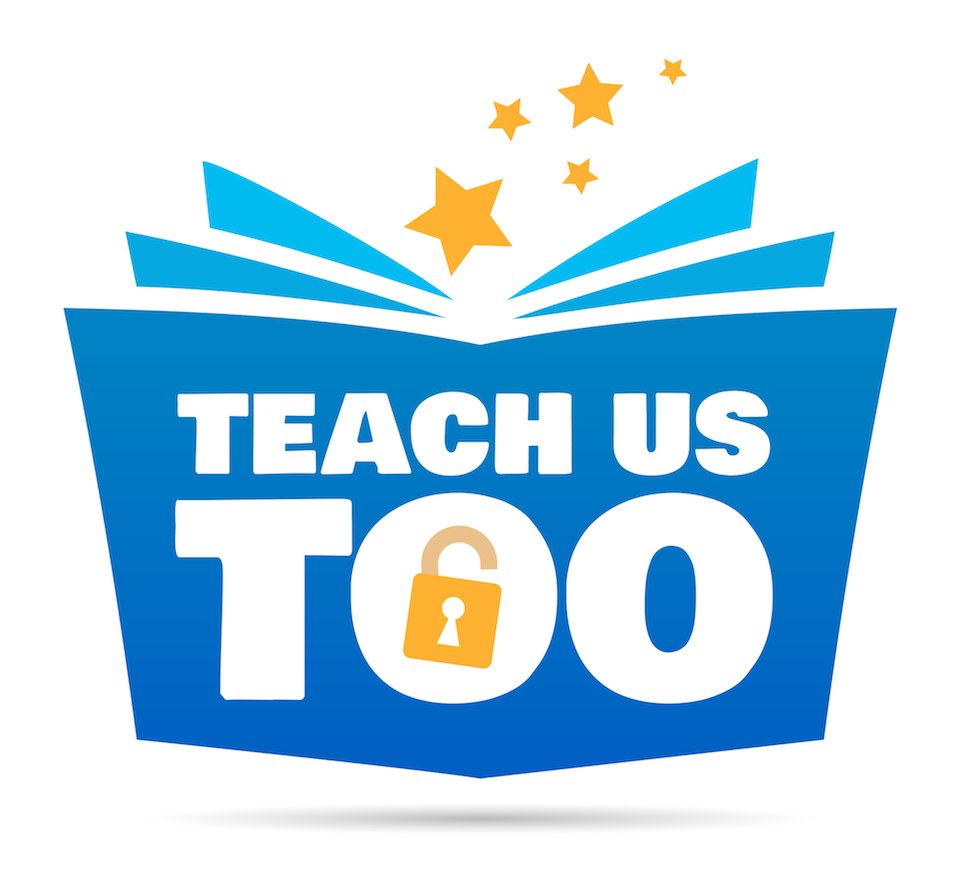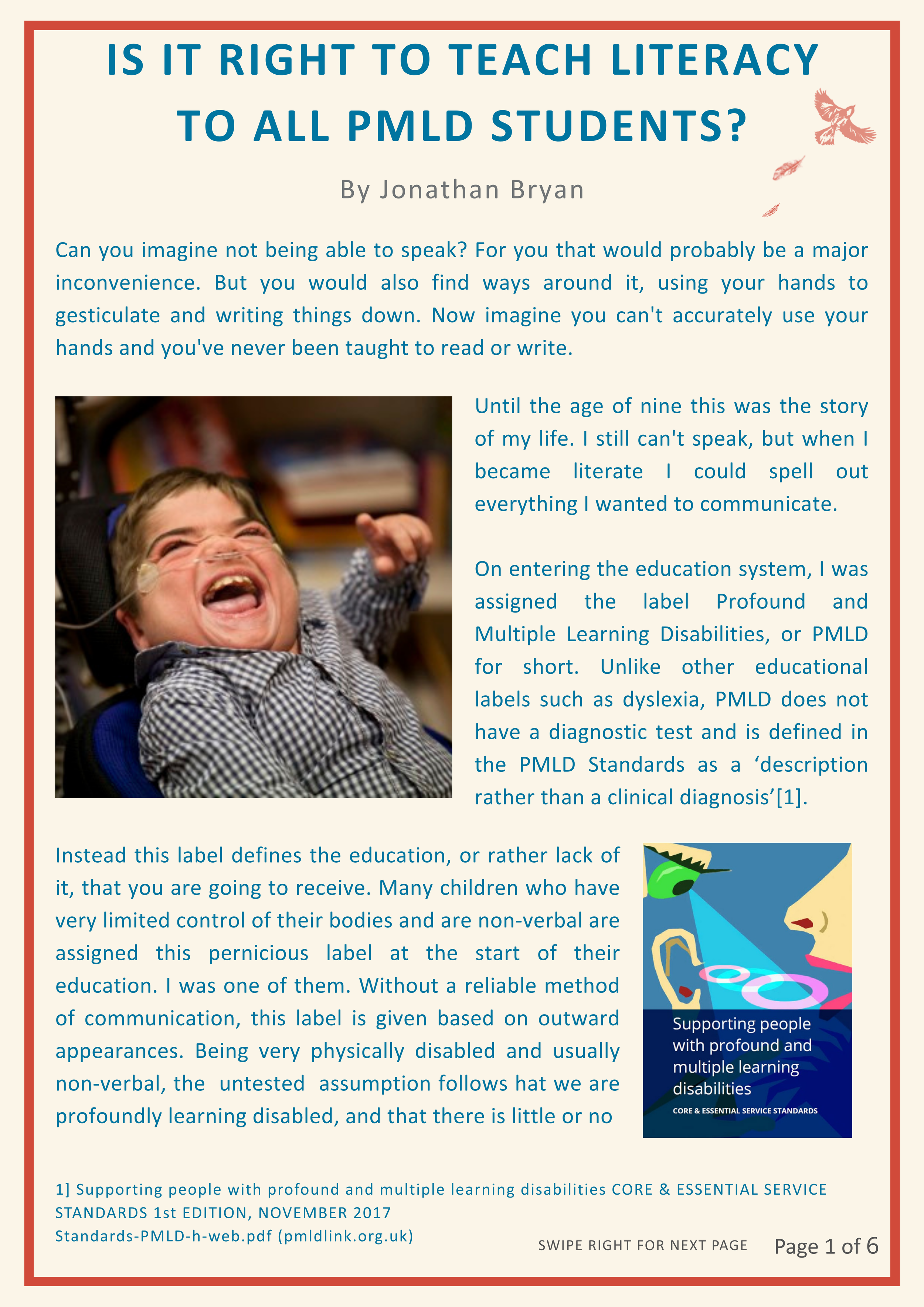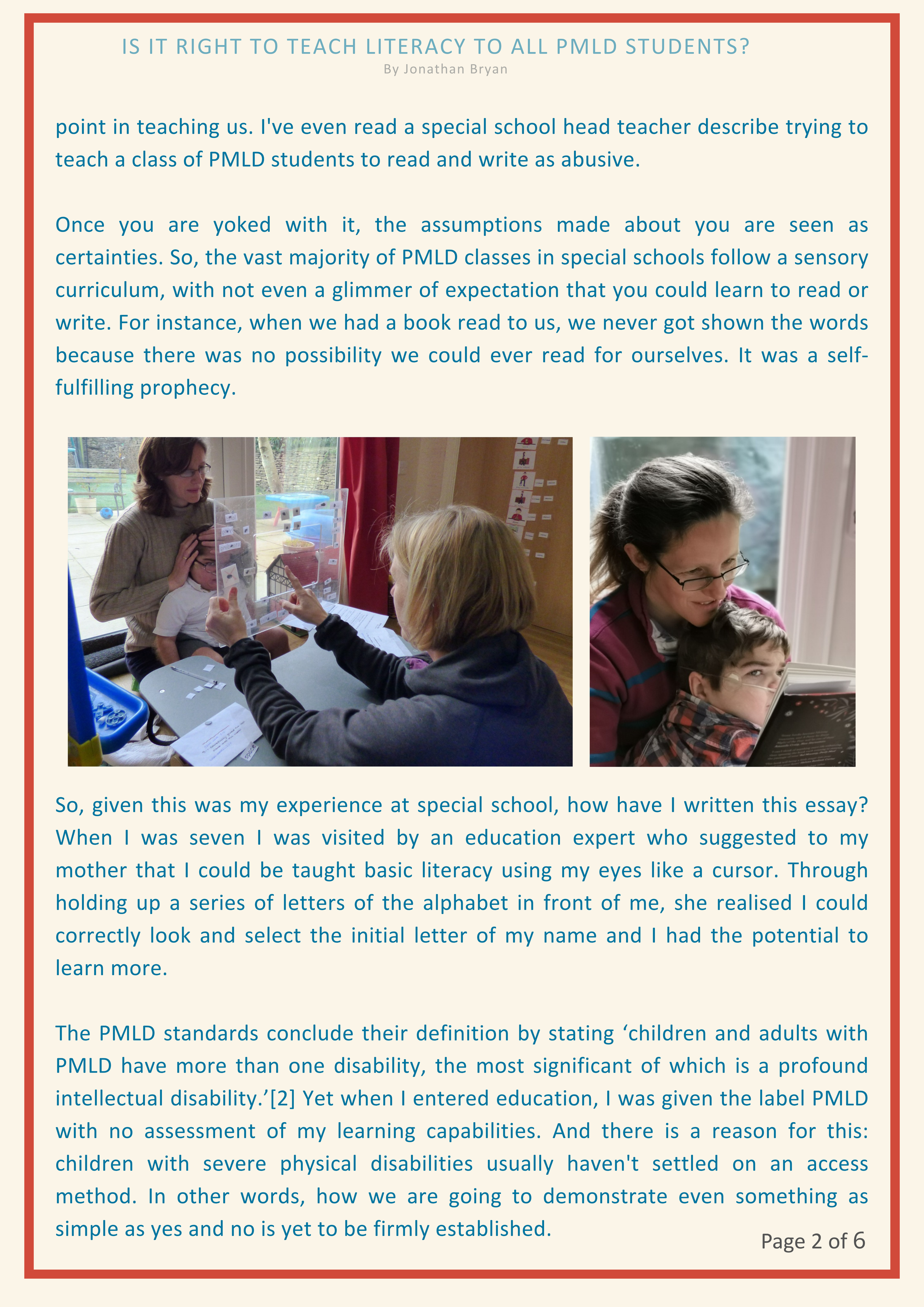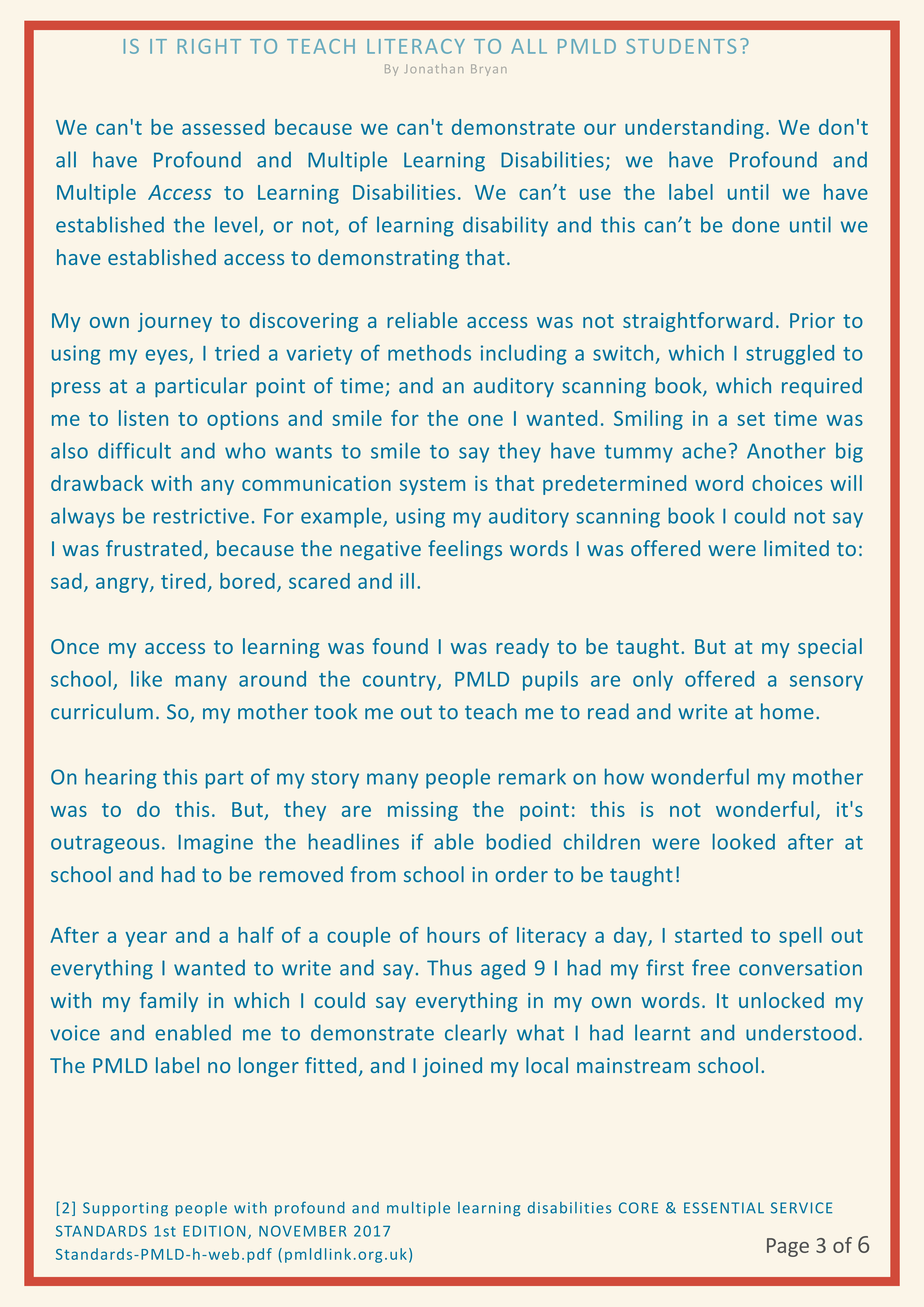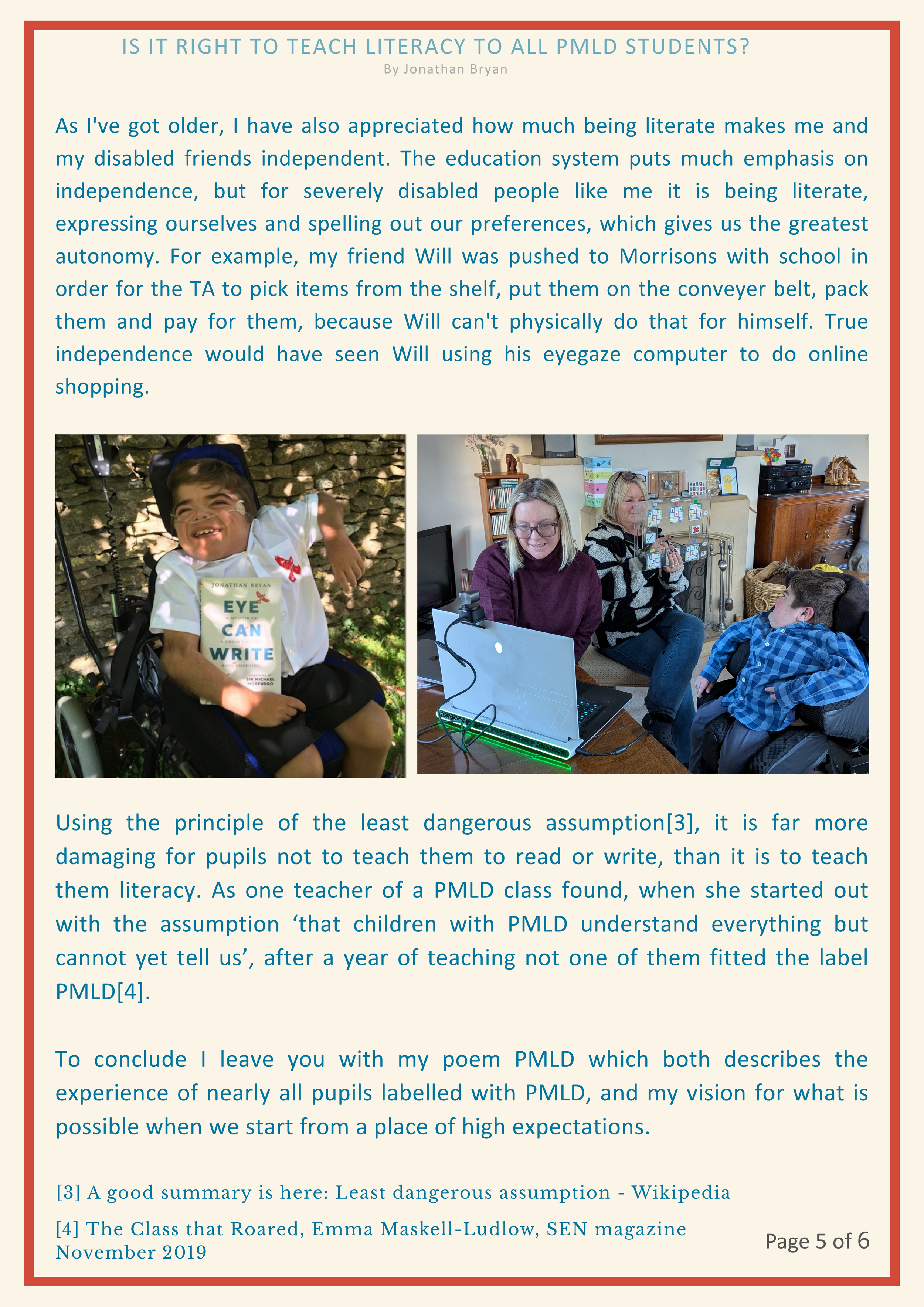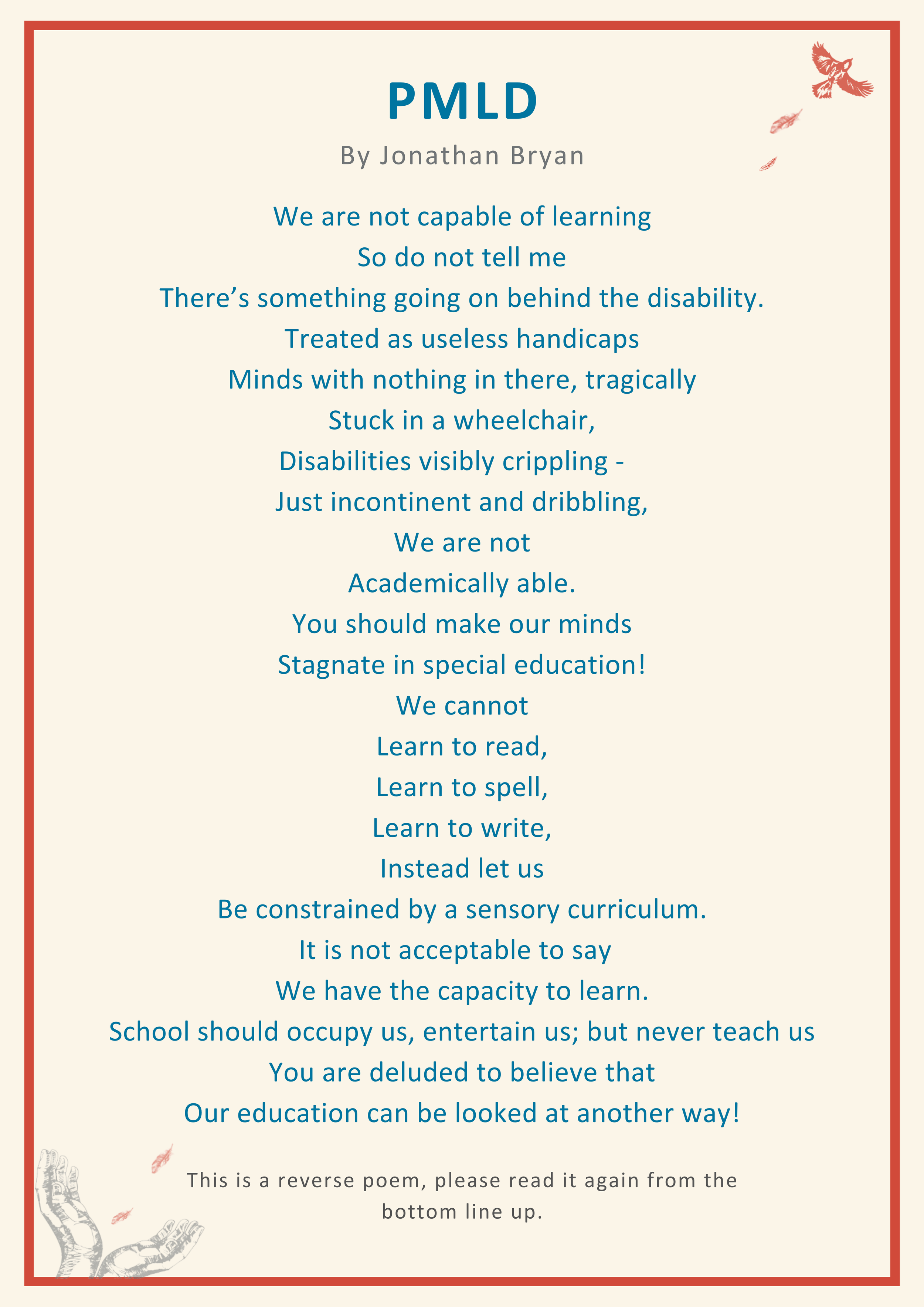Beyond Labels: The Right to Literacy for All
Featuring an essay by Jonathan Bryan: Is it Right to Teach Literacy to all PMLD Students?
Introduction: Presuming Competence
By Sarah Giles
In our training and conversations at Teach Us Too, we often talk about presuming competence — the belief that every learner, regardless of their label, communication method, or physical presentation, deserves to be seen as capable and to be given meaningful opportunities to learn.
Presuming competence is an essential mindset shift across the fields of special education and AAC. It challenges low expectations and reminds us that outward appearance or lack of speech does not equate to lack of understanding. It invites us to teach as though learning and comprehension are possible, even when the evidence isn’t yet visible.
But after Session 2 of our current online training course, Literacy Without Limits, we’ve been reflecting on the term presuming competence and how it’s sometimes misunderstood. Perhaps it helps to think about presuming competence through the lens of presuming potential — not as the belief that non-speaking or complex learners already know, or will automatically know, everything we teach, but as the understanding that they can learn when given meaningful opportunities.
It’s about recognising potential and providing access, time, and teaching so that ability has the chance to be revealed. Presuming potential captures the same spirit of high expectation, but with a clearer focus on growth, opportunity, and what could be learned.
It shifts the focus from proving competence to creating opportunity. It says:
“You may not yet have the means to show what you know — but we believe in your capacity to develop, and we will teach you as though that’s true.”
Presuming potential isn’t blind optimism. It’s a practical, evidence-based commitment to providing access to communication, literacy, and learning — because we’ll never gather evidence of what’s possible if we don’t first make space for it to appear.
Starting from that belief transforms what we do. It leads us to offer robust AAC early, to adapt the spaces and supports around the learner, and to look for moments of success — because we see what we look for, and often miss what we don’t.
Jonathan’s story captures this perfectly. Labelled with Profound and Multiple Learning Disabilities (PMLD) as a child, he was assumed to have little learning potential. But once given access to literacy, his understanding — and his voice — emerged.
Jonathan wrote the following essay when he was 16. It powerfully illustrates why presuming potential isn’t just an idea — it’s a call to action. Please swipe through to read it all.
To watch a recording of Jonathan’s PMLD video click below
Turning Belief into Action
Jonathan’s story doesn’t just remind us what’s possible — it challenges us to respond.
Presuming potential means more than holding a belief; it’s a call to teach differently. It asks us to give every learner access to communication, literacy, and learning experiences that reveal what they can do — not confirm what we assume. It’s about offering opportunity first, and allowing understanding to emerge through that process.
When we presume potential, we change what we notice. We begin to see progress in small interactions, growth in unexpected places, and understanding expressed in ways we might once have overlooked.
Jonathan’s journey is not an exception — it’s evidence of what happens when someone is given the chance to be taught, to explore, and to express. His voice — and those of many others — remind us that literacy is not a privilege. It’s a right.
At Teach Us Too, our work continues from that belief: that every child has potential worth teaching for, voices worth hearing, and futures worth investing in.
